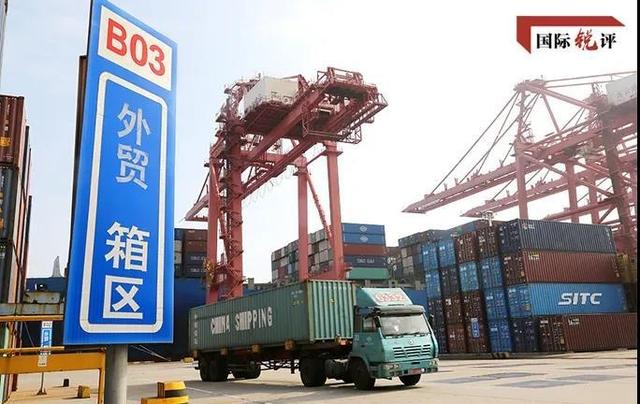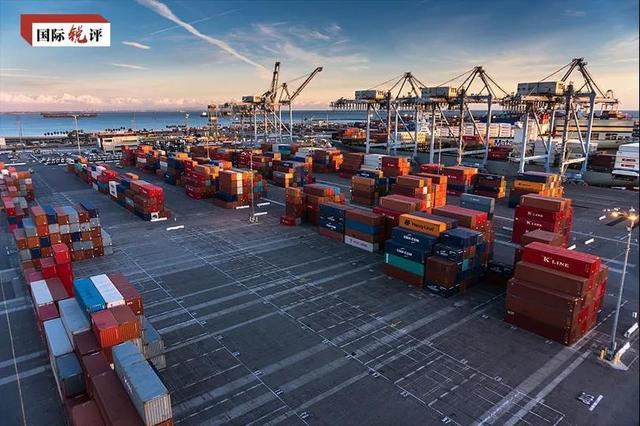the latest import and export data released by the General Administration of Customs of the people's Republic of China on the 14th showed that the total import and export value of China's goods trade in the first half of the year was 14.24 trillion yuan, although it decreased by 3.2% year-on-year, but the decline was significantly narrowed by 3.3 percentage points compared with the first quarter. Especially since April, China's exports have achieved positive growth for three consecutive months; In June, exports increased by 4.3% year-on-year and imports increased by 6.2% year-on-year, achieving double positive growth for the first time in the year. It can be seen that in the first half of the year, although China's foreign trade was impacted by the COVID-19, it performed better than expected and gradually stabilized on the whole, indicating that the efforts of the Chinese government to stabilize the basic market of foreign trade are taking effect

from the perspective of foreign trade market," the the Belt and Road" The continuous tapping of market potential and the increasing diversification of foreign trade partners have played an important supporting role in stabilizing the basic market of China's foreign trade. Among them, the most eye-catching performance is ASEAN countries. In the first half of the year, the total import and export value of China and ASEAN reached 2.09 trillion yuan, a year-on-year increase of 5.6%, accounting for 14.7% of China's total foreign trade. ASEAN has replaced the EU as China's largest trading partner. The reason is that the overall epidemic prevention and control situation in the ASEAN region is relatively good, and in recent years, the economic and trade cooperation between China and ASEAN has continued to deepen, the industrial chain has been more closely integrated, and the bilateral trade has increased steadily. At the current time of the spread of COVID-19, the market potential along the "the Belt and Road" represented by ASEAN countries has been continuously released, which is making up for China's losses in traditional markets such as the EU and the United States
from the perspective of market operators, private enterprises are becoming more and more important in the steady growth of China's foreign trade. In the first half of the year, the import and export of private enterprises reached 6.42 trillion yuan, an increase of 4.9%, accounting for 45.1% of China's total foreign trade, an increase of 3.5 percentage points year-on-year. Against the backdrop of the current downturn in Global trade and increased uncertainty, the import and export of private enterprises can achieve contrarian growth. It is inseparable from China's encouragement of independent innovation and independent intellectual property rights for many years. A number of representatives of private enterprises with good brand effect have emerged. They work together with other small and medium-sized private foreign trade enterprises to continuously expand the export market for Chinese goods. Nowadays, private enterprises have surpassed foreign-funded enterprises and become the largest business entity of China's foreign trade. Especially in the face of the impact of the epidemic, these private enterprises have shown strong toughness and vitality and become a solid barrier for China's "stabilizing foreign trade"

from the perspective of foreign trade market," the the Belt and Road"housing economy" products also increased rapidly. In the first half of the year, the export of textiles, including masks, increased by 32.4%, the export of pharmaceutical materials and drugs, medical instruments and devices increased by 23.6% and 46.4% respectively, and the export of notebook computers and mobile phones increased by 9.1% and 0.2% respectively. At the same time, as a new form of trade, cross-border e-commerce rose against the trend, which also played a positive role for Chinese foreign trade enterprises in coping with the impact of the epidemic
in addition, the gradual stabilization of China's foreign trade is inseparable from the full support of policies. Since the beginning of this year, the Chinese government has successively issued 10 measures to stabilize the growth of foreign trade and formulated a package of policies and measures such as 50 specific task lists. The Canton Fair, known as "China's first exhibition", has been transferred to online hosting, the China EU train has been used to help enterprises greatly affected by the epidemic recover their import and export business, and 46 cross-border e-commerce comprehensive pilot zones have been added. Recently, the Chinese government has continued to increase relevant policies, accelerate the progress of export tax rebate, guide financial institutions to strengthen financing support such as credit, credit insurance and guarantee, unblock international freight channels, and open up more "fast channels" for business personnel... The gradual implementation of these policies and measures has provided real support for foreign trade enterprises to tide over the current difficulties. According to the data of China's State Administration of Taxation, from January to May this year, China has handled export tax rebates and exemptions for enterprises totaling 632.4 billion yuan

at present, the epidemic of COVID-19 is still spreading all over the world, the growth momentum of the world economy has weakened significantly, and the global market demand tends to be weak. The World Trade Organization predicts that the global trade in goods will decline by 13 to 32 percent this year, and the United Nations Conference on Trade and development predicts that it will decline by 20 percent. This means that China's foreign trade development is still facing more uncertain and unstable factors, and the import and export situation in the second half of the year is still complex and grim.
however, the gradually improving import and export data show that China's foreign trade development is resilient and has great room for maneuver, and the long-term development trend has not changed. Especially with the continuous release of the effects of relevant foreign trade stabilization policies and measures, China has the ability to stabilize the basic situation of foreign trade, boost the confidence of global supply chains, and contribute to promoting world economic growth and economic globalization. (International sharp review commentator)
[source: CCTV news client]
the copyright belongs to the original author and pays tribute to the original
